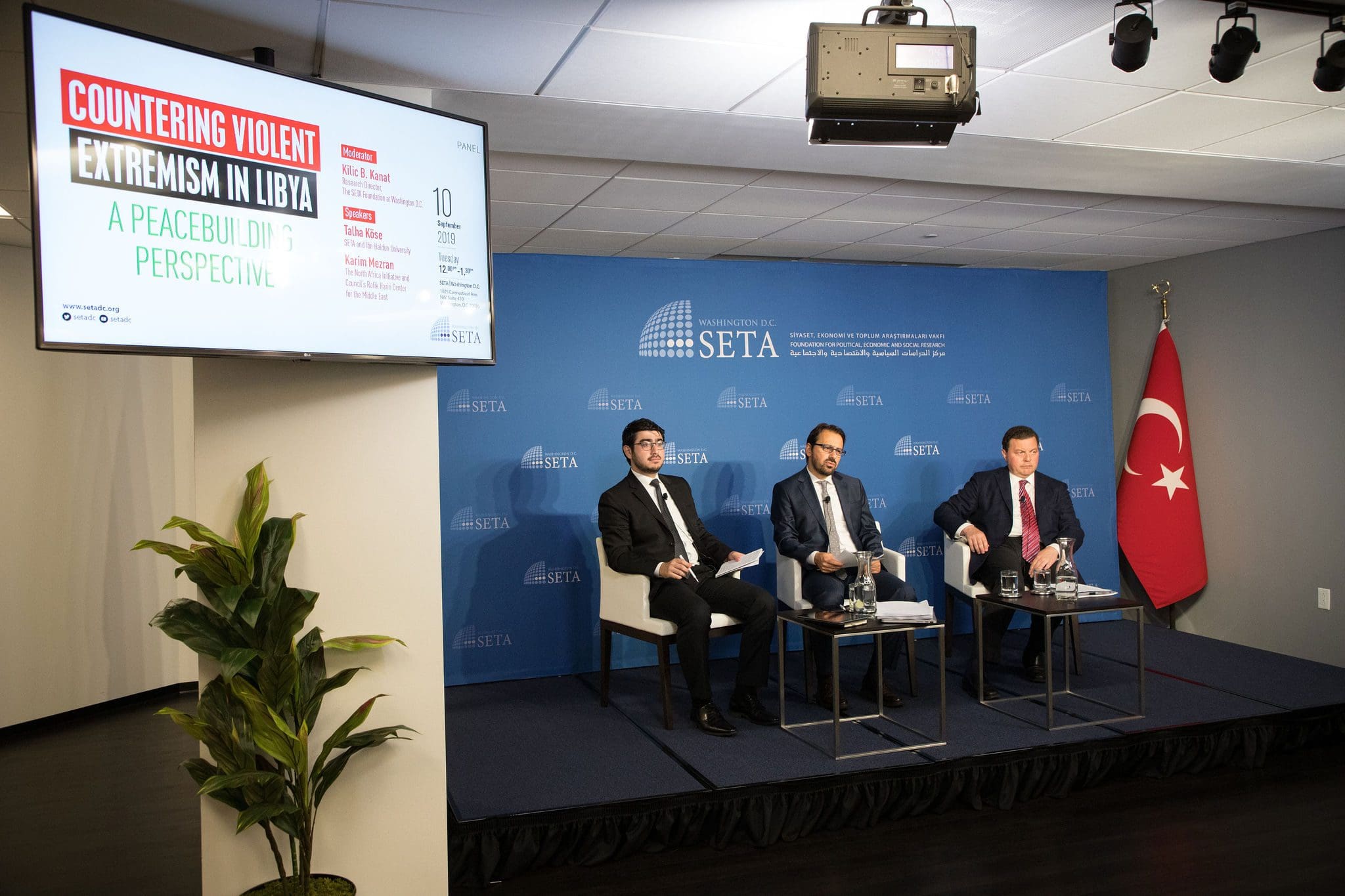
Event Summary: Countering Violent Extremism in Libya: A Peacebuilding Perspective
September 10, 2019SETA Foundation at Washington, DC hosted a panel discussion titled, “Countering Violent Extremism in Libya: A Peacebuilding Perspective”
On September 10, 2019 the SETA Foundation at Washington, DC hosted a panel discussion titled, “Countering Violent Extremism in Libya: A Peacebuilding Perspective” moderated by Hasan Yucel, Research Assistant at SETA DC. Panelists included Dr. Talha Köse, Senior Researcher at the Strategy Program of the SETA Foundation in Istanbul and Chair of the Political Science and International Relations Department at Ibn Haldun University, and Dr. Karim Mezran, Director of the North Africa Initiative and Resident Senior Fellow at the Atlantic Council’s Rafik Hariri Center for the Middle East.
Dr. Talha Köse provided an inside look into SETA’s newest report on violent extremism in Libya, focusing on the importance of engaging with this issue due to the fact that local actors have exploited Libya’s instability. After the revolutions in the Middle East and North Africa, some of the actors in the region instrumentalized the idea of violent extremism, suppressing political engagement and democratic processes. In terms of the current civil war, Köse is concerned with fragmentation between the Eastern and Western parts of Libya if Haftar fails. He recommends that Libya comply with the UN supported peace process in order to ensure future stability.
Dr. Karim Mezran highlighted the importance of understanding that Libya has never been a united country, but recent urbanization has brought about a sense of cultural cohesion. One of the problems he emphasizes is the fact that what happened in Libya was not a revolution of the people uprising against Gaddafi, but rather the beginning of the civil war that has pitted one side of Libya against the other. He makes it clear that Haftar’s attempt to take Tripoli was an irrational pursuit considering that it took him well over 2 years to take Benghazi with half of the population of Benghazi on his side. This mentality will make negotiations with Haftar difficult, and Mezran states that he is unfortunately becoming increasingly pessimistic about the future of Libya, looking to the international community to right the ship.

































